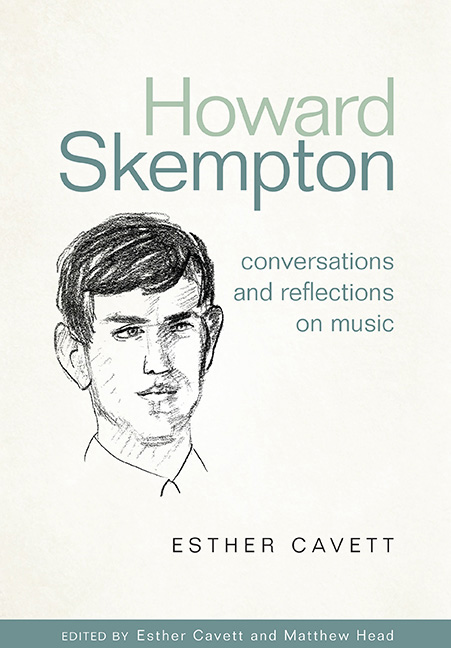Book contents
- Frontmatter
- Dedication
- Contents
- List of illustrations
- List of contributors
- Preface
- Roles and acknowledgements
- Introduction
- Editorial conventions
- Timeline
- Chapter One Histories
- Chapter Two Influences
- Chapter Three Pattern and shape
- Interval: Previously unpublished manuscripts
- Chapter Four Influencing
- Chapter Six Narrative and closure
- The story of the story
- After-image: A reflection on a reflection
- Appendix One Authorized worklist
- Appendix Two Discography of first commercially distributed recordings
- Select bibliography
- Index
After-image: A reflection on a reflection
from Chapter Six - Narrative and closure
Published online by Cambridge University Press: 10 September 2019
- Frontmatter
- Dedication
- Contents
- List of illustrations
- List of contributors
- Preface
- Roles and acknowledgements
- Introduction
- Editorial conventions
- Timeline
- Chapter One Histories
- Chapter Two Influences
- Chapter Three Pattern and shape
- Interval: Previously unpublished manuscripts
- Chapter Four Influencing
- Chapter Six Narrative and closure
- The story of the story
- After-image: A reflection on a reflection
- Appendix One Authorized worklist
- Appendix Two Discography of first commercially distributed recordings
- Select bibliography
- Index
Summary
There are many views of Skempton contained within this book, and my reading of Skempton through a psychological lens is but one interpretation, an approach which happens currently to intrigue me more than the purely musicological, analytical or literary theoretical. Another day it might be different (p. 198).
Esther Cavett's Reflection references over half a dozen books or articles dealing explicitly with memory. Memory is a primary concern of psychologists. Without memory, there would be no sense of the past; no consciousness; no sense of self.
One of the books Esther refers to is Memories and Commentaries, the second volume of conversations between Igor Stravinsky and Robert Craft. In the first volume, Conversations with Igor Stravinsky, Robert Craft asks, “What is technique?”; to which Stravinsky replies, “The whole man” (and he would no doubt today have said “person”). The use of “man” will come as no surprise to those of us possessed of any sort of memory, and it should be noted that Memories and Commentaries was dedicated to Nadia Boulanger, a composer herself until the death of her prodigiously creative sister, Lili.
Stravinsky's answer to Craft should not surprise us. In Memories and Commentaries, he describes his piano teacher as “an excellent pianist and a blockhead – a not unusual combination.” At the end of a long paragraph about his piano lessons, he concludes: “The real answer to your questions about my childhood is that it was a period of waiting for the moment when I could send everyone and everything connected with it to hell.”
Be that as it may, Stravinsky's technique, throughout his long creative life, was to work at the piano. His musical material was immediate – so not mediated (my thanks to my friend, Michael Parsons, for that clarification). There is mediation, however, in the translation of that “material” into “music.” His discovered sounds were not committed to paper at the point of discovery, but later, once intuition and judgement had made sense of them. This process of giving shape to musical material is only possible through the exercise of memory. Memory could be likened here to a marinade, serving both to flavour and clarify.
- Type
- Chapter
- Information
- Howard Skempton: Conversations and Reflections on Music , pp. 201 - 204Publisher: Boydell & BrewerPrint publication year: 2019



